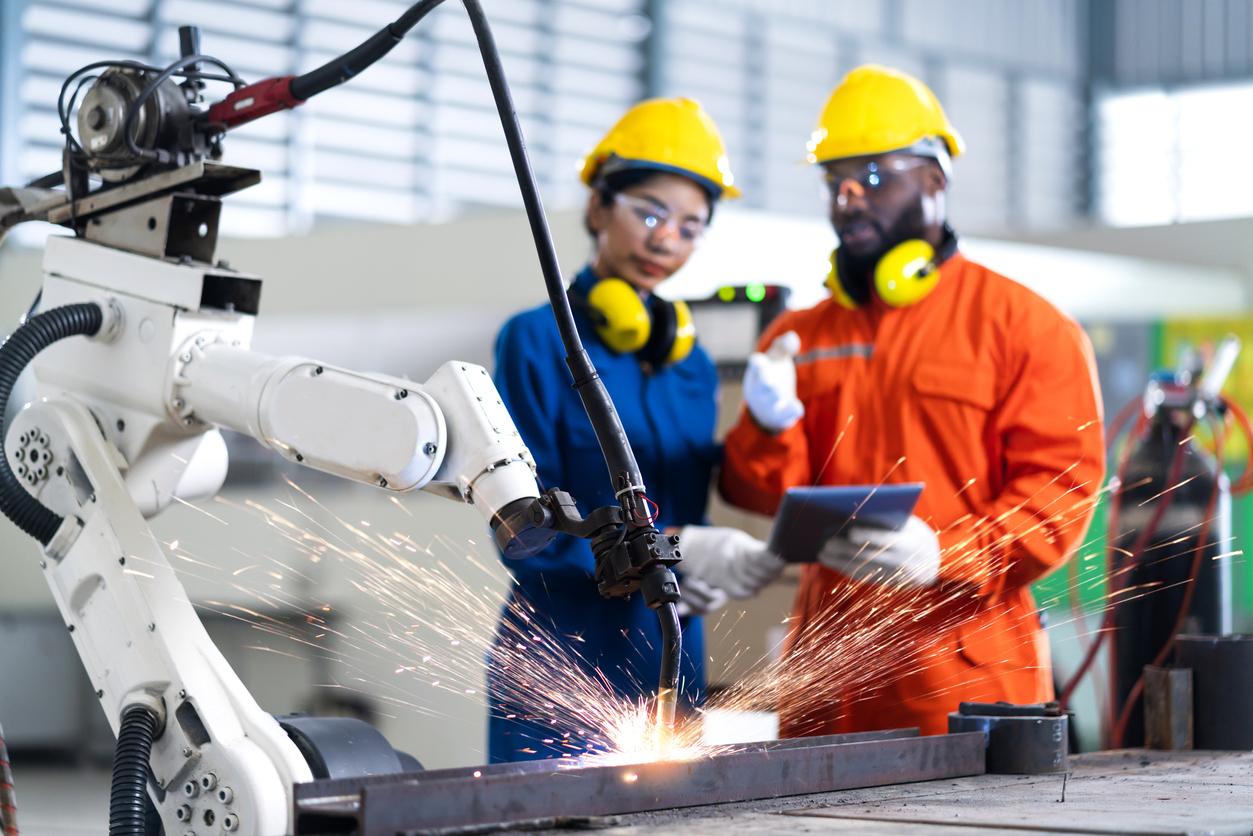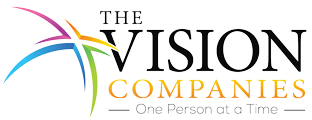
Manufacturing is a crucial industry that drives economic growth by producing necessary goods and creating jobs for millions of people worldwide. However, working in a manufacturing facility can be dangerous. People with manufacturing jobs work around heavy machinery, hazardous chemicals, and high noise levels, which can lead to severe injuries and accidents. That’s why it’s essential for manufacturing workers to take the necessary steps to protect themselves and create safe workplaces. In this article, experts at a manufacturing staffing agency in Minneapolis explore critical strategies for manufacturing workers to use to stay safe on the job.
Manufacturing Recruiters in Minnesota Provide Safety Tips for Workers to Avoid Disasters on the Job
No matter your title or experience level, you can employ the following simple but crucial tips to stay safe at your manufacturing job.
Avoid Risks by Being Proactive
Staying safe is a team effort when you work at a large manufacturing facility. Each employee is responsible for keeping their workplace risk-free and reporting any safety concerns.
Keeping your personal workspace clean and organized is one simple but effective way to avoid risk proactively. Take time at the start and end of your work day to make sure your workspace is tidied with each tool in its proper place. Similarly, make sure you’re familiar with your company’s emergency procedures – what to do in case of fire, systems failure, or other worst-case scenarios.
Another way you can proactively stay safe on your manufacturing job is to take regular breaks. Overworking yourself makes you less likely to stay alert and notice potential safety hazards. By taking your full breaks, whether for lunch or for shorter periods of time, you’ll be more refreshed and attentive, leading to a decreased chance of accidents or injuries.
Manufacturing employees should also be proactive about reporting safety risks they see on the job. No concern is too small or trivial – seemingly minor issues like a wet floor, a stuck window, a loose screw, or a dull tool could all cause serious workplace accidents. If you’re a manager or supervisor, take your employees’ safety reports seriously. Encourage your team members to report safety concerns to you and ensure they know they won’t be reprimanded for doing so. Address concerns immediately and escalate them up the management ladder if need be.
Keep a Checklist of Safety Measures Handy
Checklists are effective tools for manufacturing companies to alleviate risk and ensure their employees’ safety. If you work a light industrial or manufacturing job, your employer should provide you with a variety of safety checklists to use throughout your day. Although they may seem unnecessary if you’re an experienced manufacturing worker, it’s important to consistently use checklists to ensure you follow processes and minimize your risk of accident or injury.
Safety checklists used in manufacturing jobs may include:
- The personal protective equipment (PPE) or safety gear you’re required to wear on the job.
- Processes for operating different types of tools or machinery.
- Steps to take to ensure equipment and machines are in good working order.
- Processes for cleaning your workspace or certain types of machinery.
- Items to check for electrical and fire safety: checking against frayed or damaged cords, ensuring fire extinguishers and smoke detectors are present and in good working order, staying on top of evacuation procedures, and more.
- Ergonomic best practices to follow to prevent injury – safe lifting techniques, proper seating and workspace arrangements, and more.
Managers and supervisors should also periodically review safety checklists to ensure they’re accurate and up to date.
Be Alert and Vigilant During Training
Proper training is essential in all jobs, but it becomes even more important in industries like light industrial and manufacturing that have higher accident rates and other workplace hazards. If you’re starting a new manufacturing job, it’s crucial that you pay close attention to all workplace training to minimize your risk of injury and help maintain a safe working environment. If you have questions during this training, be sure to ask your supervisor or the person running the training. It’s much better to walk away from manufacturing safety training with a full understanding of the material than it is to try to impress your employer with your knowledge.
During your time in a manufacturing job, be sure to speak up if you’re assigned a certain task or to work with a particular piece of machinery that you’re not properly trained in. Let your supervisor know that you haven’t been fully trained in the task and that you’ll need further training before you can accomplish the job safely. You should do this even if you have experience with similar tasks or machinery from a previous job. Each employer is legally required to give you full training on the machinery and other operations and responsibilities of their workplace.
Always Wear Your Safety Gear
While the importance of wearing all assigned safety gear should be obvious, it can be all too easy to backslide into bad habits over time. But no matter how long you’ve worked for a certain manufacturing company or how confident you are in your abilities to get the job done safely, you should always wear your safety gear or personal protective equipment.
Wearing proper safety gear is one of the simplest ways you can prevent workplace accidents or injuries. Depending on your company and role, your employer may require you to wear safety gear such as safety gloves, safety goggles, masks, reflective clothing, ear plugs or headphones, hard hats or helmets, or more. This protective equipment is your personal safeguard against sharp objects, hazardous chemicals, falling materials, and other manufacturing dangers, and can prevent serious injury in case of a slip or fall.
In addition to always wearing your safety gear, you should periodically inspect it to ensure it’s in good condition. Let your supervisor know immediately if any part of your safety gear needs to be replaced or repaired.
Use the Equipment and Machinery as Advised
Many manufacturing companies use heavy machinery and other potentially dangerous equipment on their shop floors. It’s imperative that you use caution when operating manufacturing equipment and machinery and only use it as directed.
As we stated above, you should not operate a piece of manufacturing equipment or machinery if you haven’t received full and proper training in its use. Misusing tools or machines, whether from a lack of training or simple carelessness, is one of the most common sources of workplace injury and can seriously impact your safety and your fellow employees’ safety.
You should also follow all safety checklists associated with specific tools and machinery to ensure they’re in good working order. You should never use machinery or tools that need to be repaired, even if the issue appears to be minor. If you notice a piece of equipment that isn’t working properly, has a part missing, or otherwise needs to be repaired or replaced, inform your supervisor immediately.
Finally, remember to wear all safety gear and PPE associated with heavy machinery in your workplace, such as gloves, goggles, and more.
How Can Employees in a Manufacturing Facility Report Unsafe Conditions?
Each employee at a manufacturing facility is responsible for staying vigilant and reporting any concerns they may have regarding their workplace safety. If you’re a manufacturing worker in Minnesota and notice unsafe or hazardous conditions at your manufacturing or light industrial job, you should report them to your supervisor as soon as possible. And if your supervisor doesn’t promptly solve the issue, you can escalate the situation by filing a complaint with the Minnesota Department of Labor and Industry.
Don’t worry about how your employer will receive your report. According to the Minnesota Occupational Health and Safety Administration (MNOSHA), all employees have the right to file complaints about their workplace safety and health conditions. Employees who file complaints with MNOSHA also have the right to remain anonymous so that their employers don’t know who submitted the report. Lastly, the staff at MNOSHA can help if your employer retaliates against you for reporting a safety issue or workplace injury.
You can file a safety complaint with MNOSHA through their website. Note that complaints about employer retaliation must be filed within 30 days of the adverse action.
Partner with a Manufacturing Staffing Agency in Minneapolis to Find or Fill Manufacturing or Light Industrial Jobs
Top manufacturing and light industrial employers are constantly searching for safety-minded candidates to join their teams. If you’re searching for manufacturing jobs in Minneapolis or other areas of Minnesota, you may benefit from working with a light industrial and manufacturing recruitment agency.
The Vision Companies is a manufacturing staffing agency in Minneapolis committed to connecting dedicated job seekers with quality employers in the Twin Cities. Our expert recruiters can help you find a great position with a company that cares about your safety. To get started, search our open jobs today.









